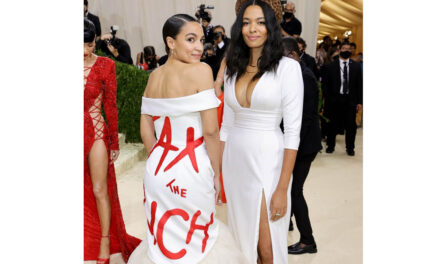
New Black History Museum Slights Clarence Thomas
The Smithsonian’s newest history museum – the first national museum devoted entirely to African American history and culture – opened its doors to the public amidst much celebration last month.
Guests were shocked to find that the museum did not find much space to honor Clarence Thomas, the second African American to sit on the United States Supreme Court.
According to the Washington Post, “Visitors walk the path from slavery to civil rights to the Black Lives Matter movement, and everything in between. The familiar and the untold stories of history are shared through meaningful objects: from the shawl of Harriet Tubman to a candy-red Cadillac driven by Chuck Berry, to the uneven-bar grips used by Gabby Douglas in the 2012 Olympics.”
But when it comes to Justice Thomas, the museum gives him only a glancing and negative reference. This insult is especially galling considering the fact that the museum’s grand opening coincided with the 25th anniversary Thomas’ arrival on the Supreme Court.
During those 25 years, “Justice Thomas has established a reputation as quite simply one of the most important legal thinkers of his generation,” writes The Hill’s Mark Paoletta.
Thomas’ admirable rise from poverty to a position on the US Supreme Court is a story worth telling.
Thomas grew up in poverty in South Georgia, where his Geechee heritage earned him criticism and taunts from whites and blacks. Thomas was not fluent in modern English until adulthood, but through hard work and determination made his way into Yale law school and eventually into the Reagan administration.
Many blame museum curators for eschewing Thomas for the same reason the Dems attacked him when he was elected to the Supreme Court: he’s a conservative.
Thomas’ views are “deeply grounded in black conservative thought, which has a ‘raced’ history and foundation that are distinct from white conservatism,” writes Professor Angela Onwuachi-Willig.
Despite his interesting views, however, black leadership has often tried to prevent Justice Thomas from speaking at events. Many liberals labeled him a “puppet” of former Justice Scalia, but Thomas has in fact written more opinions during the past two terms than any other Supreme Court Justice.
By ignoring Thomas’ significance as a vital and influential member of the Supreme Court, the corrupt Smithsonian is suggesting that there is simply no room for black conservatives in its narrative of African American history.























This is proof that elections have consequences. Hopefully Trump will appoint several more and hopefully get to nominate at least…
Unlike Tom the bigot, I judge a man on character, actions, and words. Not color or sexual preference. You have…
Frank Dunger is secretly hoping that his kids don’t marry darkies. I would like to be a fly on the…
WeTP: Liberals helped write the Constitution. As did Conservatives. 'Americans call them hillbillies, rednecks, or white trash. I call them…
A libturd pretending to care about the constitution and its ideals. Go figure! White trash? Yeah – that’s your unveiled…